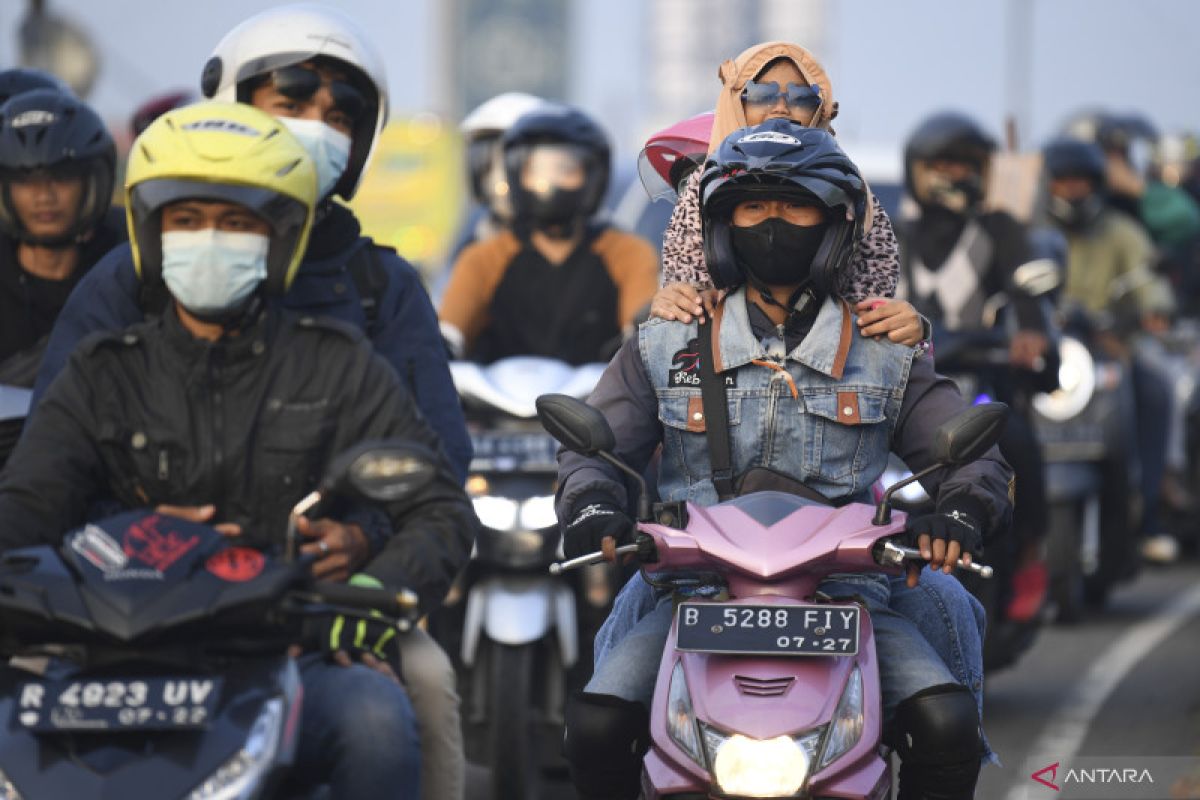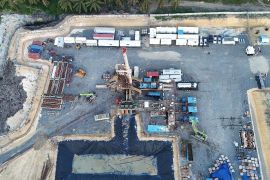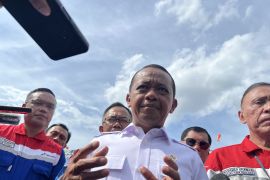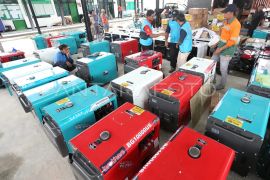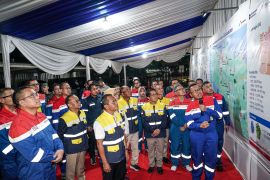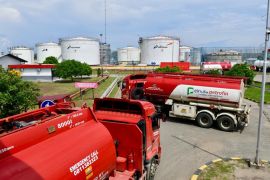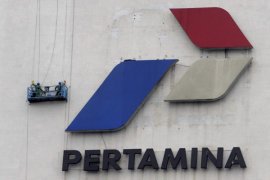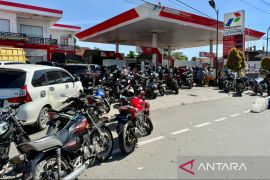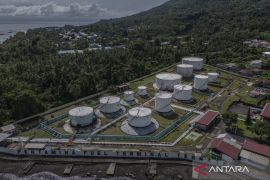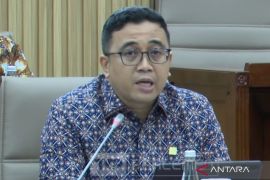Excitement for the Islamic holiday of Eid al-Fitr is gripping not only the public. Officials at ministries, agencies, and state-owned enterprises have also begun to take measures to make this year's homecoming and reverse flow a success again.
They all share the goal: ensuring people can travel safely and celebrate Eid with joy.
According to President Joko Widodo, as many as 193.6 million people are predicted to participate in this year's Eid homecoming exodus, a significant increase compared to 123.8 million in 2023.
A survey by the Transportation Ministry this year has forecast that the Eid exodus will peak on April 8 with 26.6 million people expected to travel to their hometowns.
Meanwhile, the reverse flow is projected to peak on April 14, or three days after Eid, with the estimated number of travelers pegged at 41 million.
The survey has also shown the five most popular means of transport among homecoming travelers: train (20.3 percent), bus (19.4 percent), private car (18.3 percent), motorbike (16.1 percent, and chartered car (6.0 percent).
Regarding the predicted originating regions of the 194 million travelers, the survey has indicated that 16.2 percent of travelers are expected to travel from East Java, 14.7 percent from Jakarta and its surrounding areas, and 13.5 percent from Central Java.
The survey has also listed Central Java, East Java, and West Java as the most popular travel destinations, which are forecast to be visited by 61.6 million, 37.6 million, and 32.1 million travelers, respectively.
Taking note of this, Fadjar Djoko Santoso, the vice president for corporate communication of state oil and gas company Pertamina, highlighted a likely shift in regions with the highest daily fuel consumption from Jakarta and its surroundings to the provinces of West Java and East Java during Eid holidays.
With people opting for road routes dominating homecoming travelers, Pertamina will play a vital role in ensuring sufficient supply of fuel to support people's mobility, he added.
To that end, Pertamina launched the Ramadan and Eid al-Fitr (RAFI) task force on March 25.
RAFI Task Force
The RAFI task force, which will be active until April 21, has identified 33 locations that require special attention. The locations have been categorized into four groups: tourism destinations, main traffic routes, remote areas, and disaster-prone regions.
Santoso informed that Pertamina has placed disaster-prone locations on its special list in response to the Meteorology, Climatology, and Geophysics Agency's (BMKG's) warning of potential extreme weather during the homecoming period.
The disaster-prone locations include a number of volcanoes, namely Mount Semeru in East Java, Mount Ile Lewotolok in East Nusa Tenggara, Mount Merapi in Central Java, Mount Sinabung in North Sumatra, and Mount Karangetang in North Sulawesi.
In view of the weather forecast, Pertamina has been intensively coordinating with regional governments to ensure supply sufficiency and has forged cooperation with military vessels to deliver fuel and gas to remote areas during extreme weather.
In general, to supply energy, Pertamina has prepared a range of facilities and services, including 7,400 fuel stations, 723 liquid petroleum (LPG) bulk stations, 281 delivery services, 200 tankers, 54 motorist mobile service personnel, and 30 LPG terminals.
Santoso described the motorist service as interesting since it is intended to serve homecoming travelers who run out of petrol during traffic congestion. To avail the service, people can contact call center 135 and request fuel supply.
He added that travelers can even enjoy the service on toll roads since Pertamina is coordinating with the Transportation Ministry and National Police (Polri) to allow its motorist agents to deliver fuel on such roads under the escort of police officers.
Pertamina is not only striving to meet the people' needs for fuel, but it is also ensuring that people have access to ample supply of gas for household activities.
Through its subsidiary Pertamina Gas Negara, the company has been on standby to maintain the reliability of the distribution of natural gas, including to households, during the active period of the RAFI task force.
A total of 48,207 LPG agents/outlets are currently operational, with 5,027 kept on standby 24 hours in regions with high demand for gas.
Cashless Payment
Pertamina has appealed to the public to opt for cashless payment at fuel stations during homecoming travel. This is expected to prevent long queues and provide a higher sense of security to station personnel.
Cashless payment can cut the duration of fuel transactions, leading people to worry less about long queues at fuel stations.
However, based on data, in 2023, 95 percent of consumers were still relying on conventional payment methods to buy fuel at gas stations.
To provide convenience to its customers, Pertamina has rolled out a digital app called MyPertamina that gives people several payment options, such as debit cards and QR codes.
To anticipate cash payments by people, Pertamina has been coordinating with banks in several regions, urging them to remain operational during the Eid holidays.
The government has taken several measures to ensure that Indonesian Muslims enjoy Eid festivities and the Ramadan fasting month. The people also share the responsibility of making Eid a sweet moment.
Related news: EV owners can charge at PLN offices during Eid holidays: Director
Related news: Govt should ensure staple goods affordable ahead of Eid: House Speaker
Translator: Putu Indah S, Tegar Nurfitra
Editor: Anton Santoso
Copyright © ANTARA 2024
